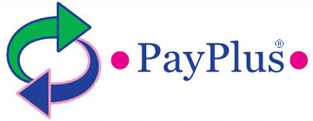2020 Form W-4: Latest changes from the IRS & how to prepare Details on handling multiple jobs and exemptions If you ask the IRS, the revamped 202 Form W-4 will make employees’ federal income tax withholding “more accurate.” But to employees, a better description of the new form might be “more confusing”. And who’s going to end up fielding question from new hires and anyone who opts to fill out an updated W-4? That’d be you in Payroll. Zooming in on the form With the year-end clock ticking, the IRS has already been encouraged employers to start reworking their payroll systems using the Aug 8, 2019, draft of the 2020 W-4. What’s more, during it September Payroll Industry Call, the IRS zoomed in on some of the form’s potential trouble spots, such as: Having multiple jobs (Step 2) and Claiming to be exempt (Step 4). Right now, employees who have multiple jobs might not realize they can adjust their withholding. After all, they have to jump to a worksheet at the end of the instructions for that. On the 2020 form, though, after completing Step 1: Enter Personal Information, they’ll be hit with. Step 2: Multiple Jobs or Spouse Works. The IRS explained Step 2 changed from the May 30, 2019, draft. It had been Step 2: Account for Multiple Jobs. Now, it’s clearer the Step 2(c) check box indicates there are two jobs in the household – and Payroll should divide the standard deduction and tax bracket equally between the two jobs. If employees complete Step 2(a) or Step 2(b) instead of Step 2(c), it’ll take them longer, but they won’t be revealing to you that they have more than one job or their spouse works. From Step 2(a) or Step 2(b), the form will send employees to Step 4(c) to enter additional amount for Payroll to withhold each pay period. As for Step 4, the IRS again noted changes between the first and second drafts – Step 4 (d) is gone. In fact, there will be no mention at all of exemption on the form itself. The IRS said its goal was simplicity, but you’re probably already anticipating some chaos. Tell employees who want to claim exemption they’re supposed to write “Exempt” below Step 4 (c). They’ll have to read the form’s instructions to decide if they’ve met conditions. More info: irs.gov/FormW4
2020 Form W-4: Latest changes from the IRS & how to prepare
Recent Posts
Archives
- June 2025
- May 2025
- April 2025
- March 2025
- February 2025
- January 2025
- December 2024
- November 2024
- October 2024
- September 2024
- August 2024
- June 2024
- May 2024
- April 2024
- January 2024
- December 2023
- November 2023
- October 2023
- September 2023
- August 2023
- July 2023
- June 2023
- May 2023
- April 2023
- March 2023
- February 2023
- January 2023
- December 2022
- November 2022
- September 2022
- August 2022
- July 2022
- June 2022
- May 2022
- April 2022
- March 2022
- February 2022
- January 2022
- December 2021
- November 2021
- October 2021
- September 2021
- August 2021
- July 2021
- June 2021
- April 2021
- March 2021
- February 2021
- January 2021
- December 2020
- October 2020
- September 2020
- July 2020
- May 2020
- April 2020
- January 2020
- December 2019
- November 2019
- October 2019
- September 2019
- August 2019
- July 2019
- June 2019
- May 2019
- April 2019
- March 2019
- February 2019
- January 2019
- December 2018
- November 2018
- October 2018
- September 2018
- August 2018
- July 2018
- June 2018
- May 2018
- April 2018
- March 2018
- February 2018
- January 2018
- December 2017
- November 2017
- September 2017
- August 2017
- July 2017
- June 2017
- May 2017
- April 2017
- March 2017
- February 2017
- January 2017
- December 2016
- November 2016
- October 2016
Categories
- 2017 Tax Changes
- 2018 tax changes
- 2019 tax changes
- 2021 Tax Changes
- 2022 Tax Changes
- business expenses
- Checking Email
- compensation
- Covid-19
- deductions
- Department of Labor, labor regulations
- direct deposit
- EEO-1 Regs
- employee benefits
- Fair Labor Standards Act (FLSA)
- FFCRA
- FMLA
- Form I-9
- Garnishments
- Hacking
- hiring
- Identity Theft
- Independent Contractor
- New hire
- Overtime
- Recordkeeping
- reimbursement
- Remote work
- retirement plan limits 2020
- Scammers
- Social Security Limits
- tax rates
- taxes
- Timekeeping
- Uncategorized
- unemployment
- W-2s
- W-4s
- W2 Requirements

Recent Comments